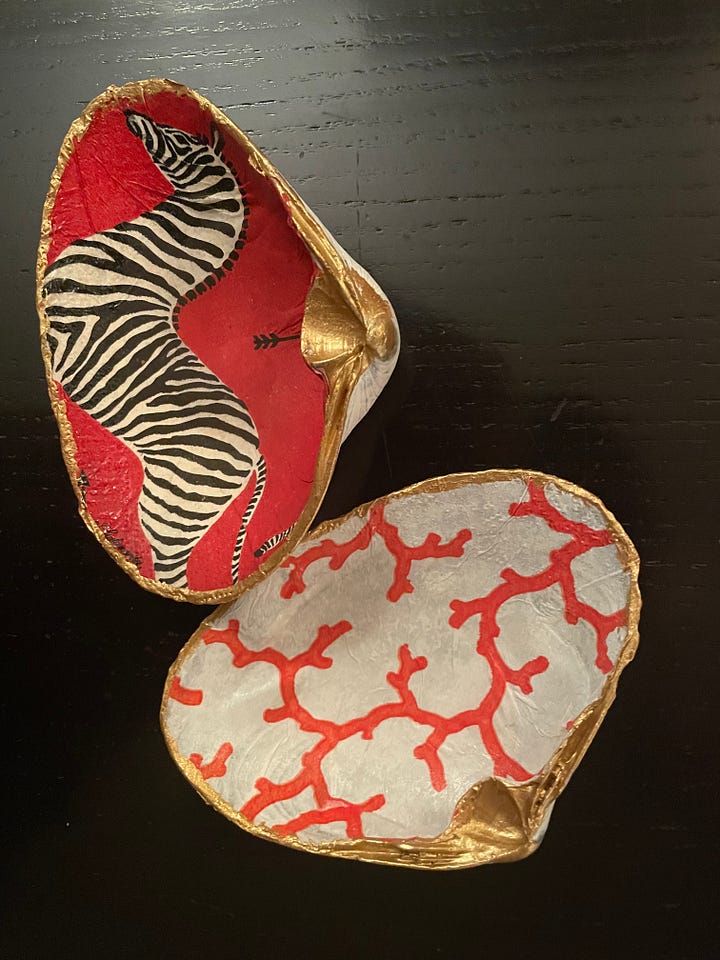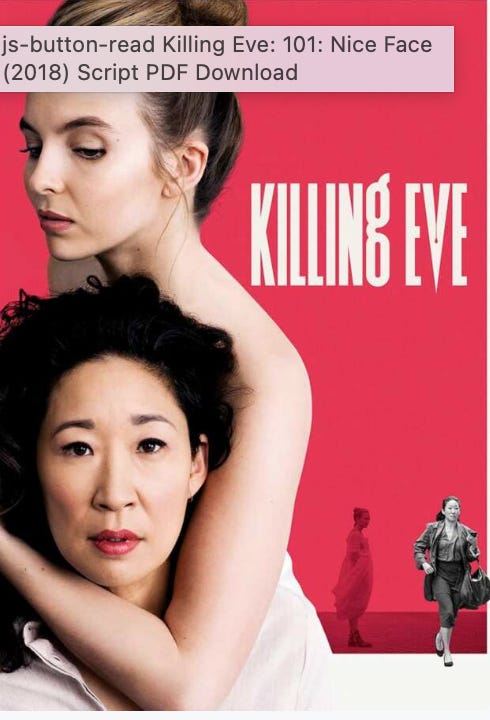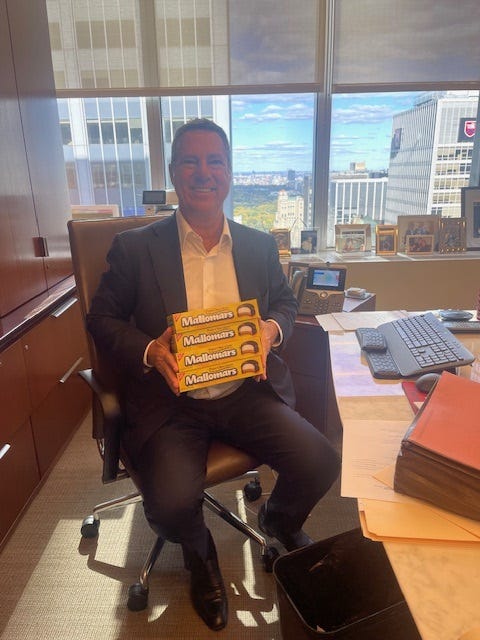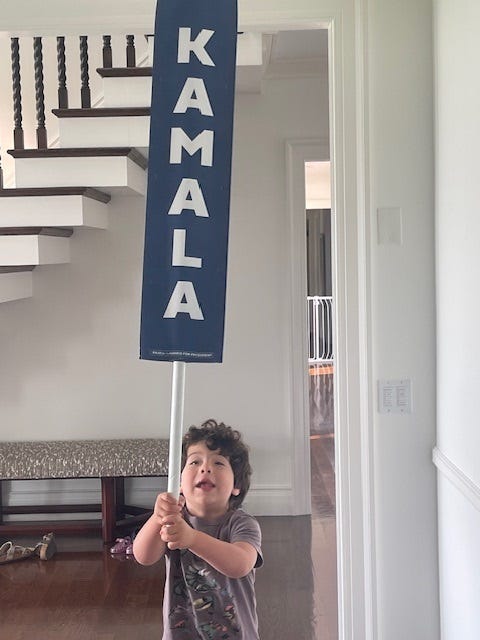Stressed about the Election? Advice from Those Wiser Than Me
I'm barely keeping it together, so I checked in with people in law, the media, medicine, and academia to see how they're managing.
I’M AT WIT’S END and barely functional. Election day is less than three weeks away, and I’m as petrified as a fattened turkey awaiting slaughter.
It doesn’t take much to trigger my anxiety these days. Whenever I leave the safe space of New York City, I find peril. Suddenly, a Trump sign or flag—often mega sized—will pop up along the roadside, on a passing pickup truck or in front of an unassuming house, and instantly I’m seized with terror. Is it possible that America will re-elect a dangerous charlatan who pushed for the overthrowing of our government?
And the polls. The polls! They are like infernal instruments of torture–teasing us with slivers of hope that are then quickly crushed. (As I write this, Harris is ahead by 2% in the national polls, though her lead in critical battleground states of Michigan, Wisconsin, Pennsylvania is less than 1%—all maddingly within the margin of error.)
At this point, polls are no better than tarot cards but we can’t help reading them. Which is why we’re going nuts.
Election angst is real. Almost 80% of respondents in a LifeStance Health survey reported anxiety due to the upcoming presidential election, with 21% indicating significant stress. What’s more, 60% of respondents who are in therapy say they’re talking about the election during their sessions.
And what kind of voters are the most anxious? Well, that depends on your political leaning. According to a Columbia University study, liberals tend to be more despondent and stressed than conservatives. Liberals are worry warts who ruminate about racial injustice, inequality, gun violence, global warming—the works.
That’s certainly my sense about this election. Somehow, Trump supporters don’t strike me as a worried or depressed lot (angry, yes). By and large, they seem more chipper, more self-assured than their liberal brothers and sisters. Is that because Trumpsters are more confident, for whatever reason, that their man will win? Or is it because they won’t accept a Harris win anyway, so why sweat it? (Imagine another January 6 insurrection but better organized and more violent.)
All this is to say that folks like me are fit to be tied. So what are people doing to get through the day? For me, it’s imbibing daily cocktails (recipe will be forthcoming in my special cocktail edition), pulling weeds (an exercise in futility, if there ever was one), and binging on Killing Eve (somehow, it’s more soothing to watch a violent series about a stylish psychopath who kills for money and fun than contemplate another Trump presidency). I also got together recently with some of my lawyer girlfriends to decoupage seashells (see below)—which made me feel like a Girl Scout gunning for her Craft and Tinker badge.


None of that is working for me, certainly not for long. So I was curious how others are coping. I contacted about a dozen people in a variety of fields—law, business, medicine, academia, and the media to get their take. (A few declined to comment, citing reprisal concerns, should Trump win.) Check out some of their responses:
Hide, hide, hide. “I've been dealing with election stress by doing my best impression of an ostrich,” says University of California, Berkeley law professor Khiara Bridges. “My head is buried so deeply in the sand at this point. I plan to finally look up and survey the damage when the coast is clear in mid-November ... or end of December ... or mid-January.... or never.”
Watch mindless TV. By far, the consensus is that watching the news is harmful to one’s health and sanity. (Alas, I’m married to a political junkie, so CNN is blasting all the time in my home. Does that qualify as spousal abuse?)
“I think Trump will win, and I’m trying hard not to think about what the country will be like,” says former New York Times and Bloomberg columnist Joe Nocera, now deputy managing editor of The Free Press. “I’ve stopped watching MSNBC and cable news. All I want to do is watch Ted Lasso and Only Murders in the Building.”
“I am watching game show reruns instead,” proclaims Gerald Hathaway, a partner at Fox Rothschild. “Steve Harvey: He’s my man!” (Harvey is the host of Family Feud, in case you didn’t know.)
Be a sports dude. “For me, the best way to avoid election anxiety syndrome is to focus on the Mets in the playoffs and the drama surrounding the Jets,” says Sullivan & Cromwell partner and M&A powerhouse Frank Aquila, who’s a big Democrat supporter.
Strive for enlightenment. I don’t know if this is a gender thing but women seem to find relief in more serious forms of entertainment. “I toggle between the BBC Radio podcasts, The Coming Storm, which ramps up my anxiety as it cuts through the craziness, and History's Secret Heroes, hosted by Helena Bonham Carter, which restores my faith in humanity,” says New York psychiatrist Shari Lusskin.
Her one big warning: “Do NOT discuss religion or politics with your friends or family, especially at the dinner table!” (Query: Do people still have friends who don’t share their politics?)
Doggies, kiddies, and cookies. “My 4-year old grandson manages the electoral stress by taking matters into his own little hands,” says Brad Karp, chair of Paul, Weiss, Rifkind, Wharton & Garrison, who takes obvious delight in his progeny (photo below). He offers another tip: “I find binge-eating Mallomars to be quite effective!” (Karp and his firm are major donors to Harris and other Democrats.)
“I got a puppy,” says columnist and TV pundit Elie Mystal, who was immortalized this year in an SNL sketch. “With my kids being old enough now (12 and nine) to be aware of the election, and my fears for their future should bigoted Christofascists retake power in this country, I needed something to love whose hopes and dreams cannot be dashed by ‘economically aggrieved’ white people.” (You tell ‘em, Elie!)


Reach out and touch. “I’m going to Flagstaff [Arizona] to knock on doors the weekend before the election, and I’ve been making phone calls into swing states, too,” says Miranda McGowan, a professor at University of San Diego Law School. “Honestly, that's been the most helpful. Doing something constructive really has a persistent positive effect, and I usually have a couple of great conversations with strangers. And I do have Ativan in my back pocket at all times!”
Legendary product liability lawyer Sheila Birnbaum offers this simple advice: “Stay the course. Donate to the candidates you want to win, talk to people about why they should vote the right way, and hope for the best in Americans to come forward and surprise us all.”
Accept that it’s out of your hands. That might not be the sexiest advice for election anxiety but it’s probably the most sensible. New York Times columnist Ezra Klein makes a similar point, advising us to stop obsessing about polls (even though his newspaper is incessantly reporting on them and making us crazy). Instead, Klein advocates that voters put their efforts on a swing state, “ideally to a state party or down-ballot race, where your efforts will go further.” After that and calling “anyone in your life who might actually be undecided or might not be registered to vote or might not make it to the polls,” let it go. “There’s nothing more you can do, and nothing more the polls can do for you.”
Make perfect sense. But I’m still very, very anxious. And you? What’s your panacea?
Contact: chen.vivia@gmail.com
Twitter (X): ViviaChen







I escaped to my favorite stress releaser/mind balancer: long arduous hiking. It helped! Two weeks in beautiful Sedona, an impossibly red area. (Pun unintended) The woo-woo new age types are Trumpers. ??!! Who knew.
I try not to doom scroll and instead take action. I've been giving monthly through a giving circle to a couple of grassroots organizations in swing states, I've been writing to postcards to voters through the organization Tony the Democrat, and I'm serving as a poll watcher in PA on election day. Recently I've been listening to the Rest Is History podcast's series on the French Revolution. Things could be much worse.